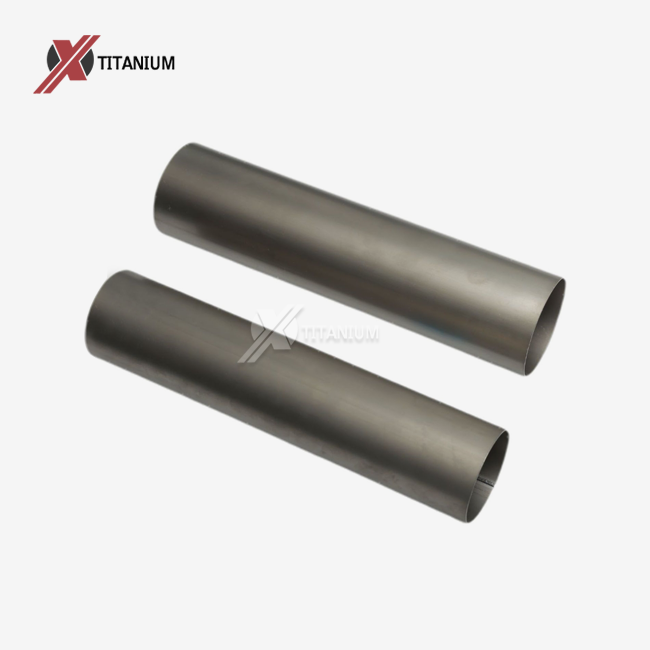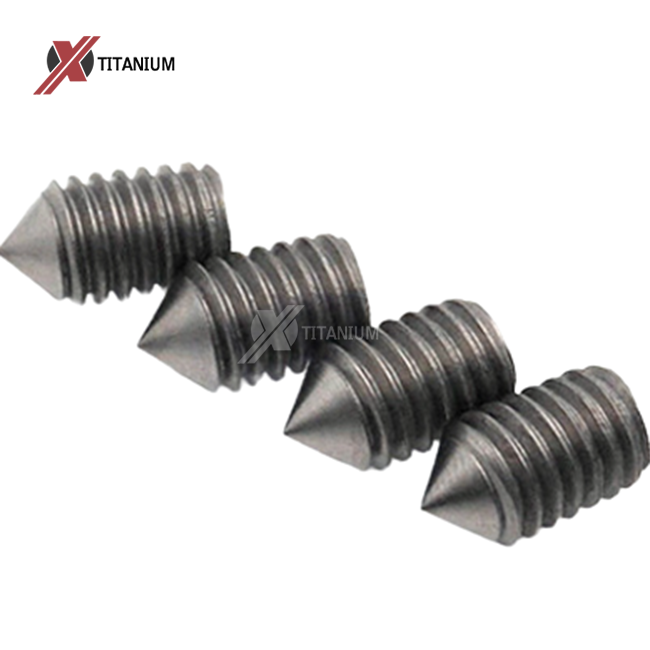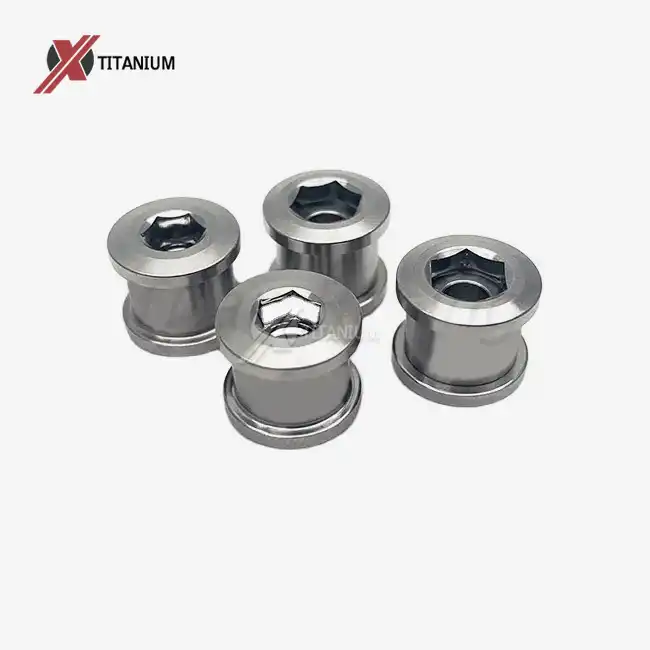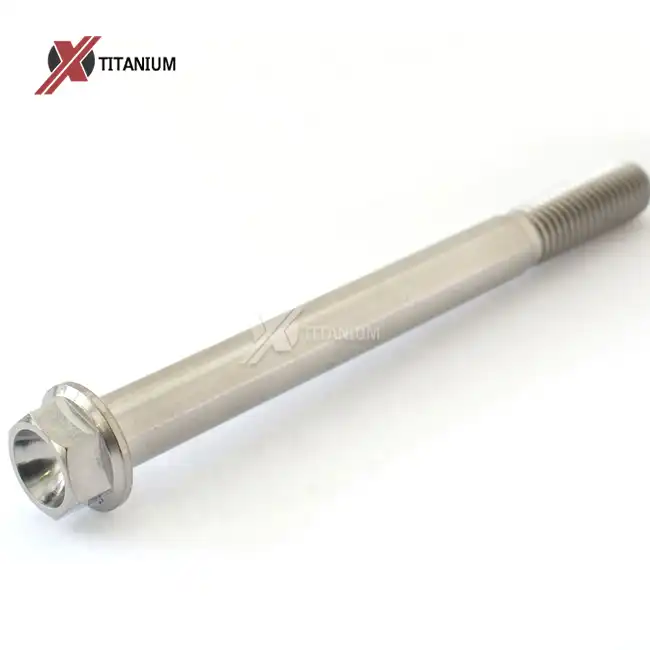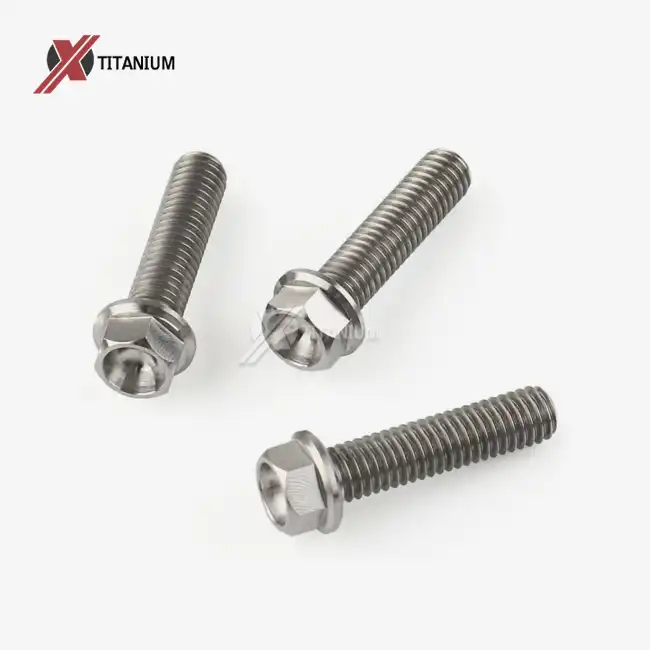Understanding Titanium Welded Tubes: Properties and Advantages
Titanium welded tubes are engineered marvels that combine the inherent properties of titanium with advanced welding techniques. These tubes offer a unique blend of characteristics that make them indispensable in many critical applications:
Exceptional Strength-to-Weight Ratio
One of the most salient features of titanium welded tubes is their remarkable strength-to-weight ratio. This property allows for the creation of lightweight yet robust structures, making them ideal for aerospace and automotive industries where weight reduction is paramount without compromising structural integrity.
Superior Corrosion Resistance
Titanium's natural ability to form a protective oxide layer gives titanium welded tubes outstanding corrosion resistance. This characteristic makes them particularly valuable in marine environments, chemical processing plants, and other corrosive settings where traditional materials would quickly deteriorate.
Biocompatibility
The biocompatible nature of titanium makes these welded tubes an excellent choice for medical applications. They are widely used in implants, prosthetics, and various medical devices where interaction with human tissue is a critical concern.
High Temperature Stability
Titanium welded tubes maintain their structural integrity and properties at elevated temperatures, making them suitable for high-temperature applications in aerospace and industrial settings.
Manufacturing Processes of Titanium Welded Tubes
The production of high-quality titanium welded tubes involves several sophisticated processes:
Material Selection
The process begins with the careful selection of titanium grades. Common grades include Grade 1, 2, 5 (Ti-6Al-4V), 7, 9, and 12, each offering specific properties suited for different applications. The China Titanium Welded Tube industry has made significant strides in material science, contributing to the global supply of high-quality titanium alloys.
Forming and Welding
Titanium sheets or strips are precision-formed into tubular shapes. The edges are then carefully aligned and welded using advanced techniques such as TIG (Tungsten Inert Gas) welding or laser welding. These methods ensure high-quality, consistent welds that maintain the material's integrity.
Post-Weld Heat Treatment
After welding, the tubes undergo heat treatment processes to relieve internal stresses and optimize mechanical properties. This step is crucial for ensuring the longevity and performance of the welded tubes.
Surface Treatment
Various surface treatments can be applied to enhance the tubes' properties further. These may include pickling to remove surface impurities, bright annealing for improved corrosion resistance, or mechanical polishing for a smooth finish.
Quality Control and Testing
Rigorous quality control measures are implemented throughout the manufacturing process. Non-destructive testing methods such as ultrasonic inspection and eddy current testing are used to detect any imperfections or defects in the welded tubes.
Applications of Titanium Welded Tubes Across Industries
The versatility of titanium welded tubes has led to their adoption in a wide array of industries:
Aerospace and Aviation
In the aerospace sector, titanium welded tubes are used in hydraulic systems, fuel lines, and structural components of aircraft and spacecraft. Their lightweight nature and high strength contribute to improved fuel efficiency and performance.
Medical and Biomedical
The medical industry relies on titanium welded tubes for various applications, including surgical instruments, implants, and prosthetic devices. Their biocompatibility and corrosion resistance make them ideal for long-term use in the human body.
Chemical Processing
In chemical processing plants, titanium welded tubes are used in heat exchangers, reactors, and piping systems. Their resistance to corrosive chemicals and high temperatures ensures long-lasting performance in harsh environments.
Marine and Offshore
The marine industry utilizes titanium welded tubes in desalination plants, offshore oil and gas platforms, and submarine systems. Their resistance to saltwater corrosion makes them an excellent choice for these challenging environments.
Energy Sector
In power generation, titanium welded tubes find applications in steam turbines, heat exchangers, and geothermal power plants. Their ability to withstand high temperatures and pressures contributes to improved energy efficiency.
The China Titanium Welded Tube industry has been at the forefront of innovation in these applications, consistently delivering high-quality products that meet global standards.
Conclusion
Titanium welded tubes represent a pinnacle of materials engineering, offering a unique combination of strength, lightness, and corrosion resistance. Their versatility has made them indispensable in industries ranging from aerospace to healthcare. As manufacturing techniques continue to evolve, particularly in the China Titanium Welded Tube sector, we can expect even greater advancements in the performance and applications of these remarkable components. The future of titanium welded tubes looks bright, with ongoing research promising new alloys and improved manufacturing processes that will further expand their capabilities and uses across various industries.
At Baoji Chuanglian New Metal Material Co., Ltd., we pride ourselves on being at the forefront of titanium product manufacturing. With over a decade of experience in titanium machining and research, our state-of-the-art facilities in Baoji City, the "City of Titanium," allow us to produce high-quality titanium welded tubes and other titanium products. Whether you need titanium fasteners, rods, wires, plates, or custom components, our team of experts is ready to assist you.
FAQ
What are the main advantages of titanium welded tubes?
Titanium welded tubes offer exceptional strength-to-weight ratio, superior corrosion resistance, biocompatibility, and high temperature stability. These properties make them ideal for aerospace, medical, and chemical processing applications.
How are titanium welded tubes manufactured?
The manufacturing process involves material selection, forming and welding of titanium sheets or strips, post-weld heat treatment, surface treatment, and rigorous quality control testing.
What industries commonly use titanium welded tubes?
Titanium welded tubes are widely used in aerospace, medical, chemical processing, marine, and energy sectors due to their unique properties and versatility.
Experience the Baoji Chuanglian Advantage in Titanium Welded Tubes
As a leading titanium welded tube manufacturer and factory, Baoji Chuanglian New Metal Material Co., Ltd. offers unparalleled expertise in titanium product fabrication. Our state-of-the-art facilities in Baoji City, the renowned "City of Titanium," enable us to produce high-quality titanium welded tubes that meet international standards. With our comprehensive range of surface treatments, quality testing procedures, and customization options, we ensure that our products exceed your expectations. Contact us at info@cltifastener.com or djy6580@aliyun.com to experience the Baoji Chuanglian advantage in titanium welded tubes and other titanium products.
References
1. Smith, J. R. (2021). Advances in Titanium Welding Techniques for Aerospace Applications. Journal of Aerospace Materials and Technology, 45(3), 178-195.
2. Chen, L., & Wang, X. (2020). Corrosion Behavior of Titanium Welded Tubes in Marine Environments. Corrosion Science, 162, 108214.
3. Rodriguez, M. A., et al. (2019). Biocompatibility and Performance of Titanium Welded Tubes in Medical Implants. Journal of Biomedical Materials Research Part B: Applied Biomaterials, 107(8), 2623-2635.
4. Thompson, K. L. (2022). Innovations in Titanium Alloys for High-Temperature Applications in the Energy Sector. Energy Materials: Science and Engineering, 7(2), 89-104.
5. Yamamoto, H., & Liu, Y. (2018). Quality Control and Non-Destructive Testing Methods for Titanium Welded Tubes. International Journal of Advanced Manufacturing Technology, 95(5-8), 2287-2301.
